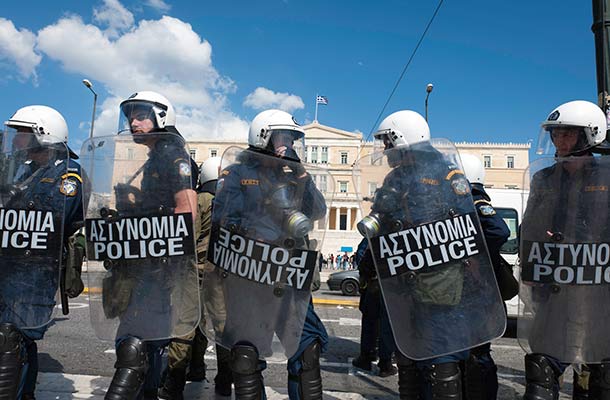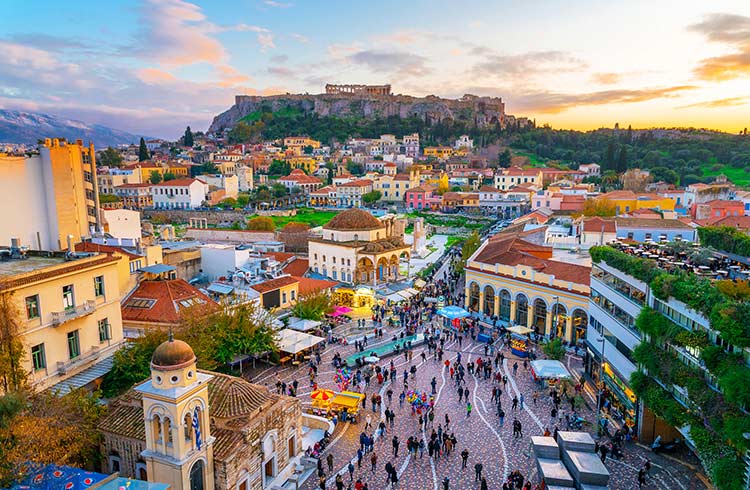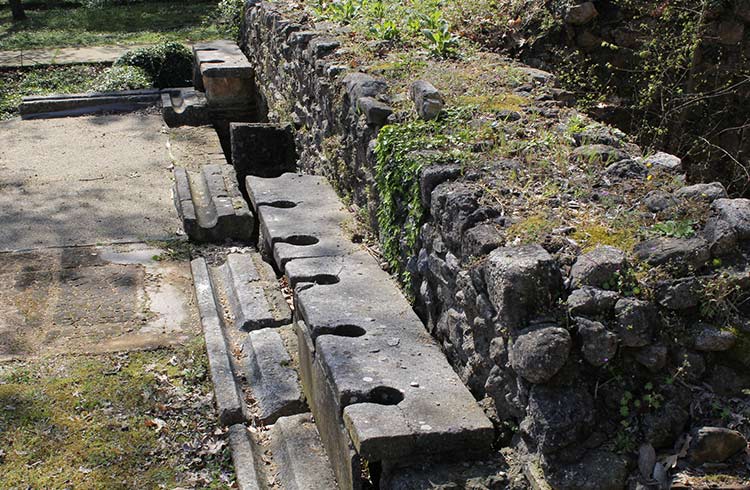Protests in Greece: How to Stay Safe
Greece remains on the ropes economically, and there are other issues which could cause public protests. Find out more about staying safe while traveling in the Hellenic Republic.
 Photo © iStock/zepperwing
Photo © iStock/zepperwing
- Pre-trip safety tips
- Austerity riots
- Current Greek protests
- Riot safety while in Greece
- Safeguarding your Greek holiday
Pre-trip safety tips
If you're going to Greece, here are some tips on avoiding trouble or coping with it if it happens:
- Keep an eye on the news. Check news reports about the situation in Greece as civil unrest can break out sporadically.
- Strike dates are announced by union bosses several weeks in advance, so try to arrange your travel around those dates.
- Regularly check your government‘s travel advice for Greece.
- Speak to your airline or travel provider about what arrangements they have in place should there be a strike or disruption.
Austerity riots
On the brink of bankruptcy, because of a Mount Olympus-sized debt, Greece has been rescued by several multi-billion Euro bailouts. But to pay for it, the Greek government has had to impose heavy budget cuts; workers have been laid off, salaries slashed, pension entitlements have been reduced and the retirement age has been raised.
The Greeks are not happy and show their displeasure with strikes and protests that occasionally turn into riots. Summer is the peak protest period.
Years of austerity measures have left a mark on Greek society; unemployment is high and, according to 2017 reports, a quarter of Greeks are living in poverty. The situation is worst in Athens.
"Travelers will notice there is graffiti everywhere," says Graeme a regular visitor with family ties to Greece. "There are beggars on the street, people living on the street, and shops closed, even in downtown Athens." His advice is to stay in the center of Athens and not to venture north of Omnia Square. "Be alert, hand on
However, the Greek Islands are different to the
Visitors
Current Greek protests
Lesvos
Greece's third largest island, Lesvos is known for its architecture, ancient culture, hot springs and activities for nature lovers, and it hasn't been subjected to over tourism
Athens
Locals in Athens have been out in force protesting against continuing government austerity measures. Many people have had to sell their homes to pay back debts they owe to government departments and utilities such as water and electricity. It's estimated 18,000 homes will be auctioned during 2018 which has sparked violent clashes and riots in Athens and other major cities including Thessaloniki.
Riot safety while in Greece
Avoid all protests. Hundreds of thousands of people waving flags and banners is a spectacular sight, you may even sympathize with their
The police won‘t discriminate between disgruntled locals and you. If you deliberately put yourself in harm‘s way and get injured, it‘s unlikely your travel insurer will look favorably on your claim. However, if you stumble on a protest, or are in some way caught in the middle of a riot you didn‘t know was happening, you should be covered for any loss or injury.
Contact your family and friends to let them know where you are and arrange regular contact where possible. If they don't hear from you, at least they will know your last known location to give to authorities.
Contact your embassy to let them know if the situation is becoming dangerous. They will also assist you with any updates and information.
If you do need to approach police for help, do it with caution and remain calm. Identify yourself with your passport or identification so they know you are a visitor.
If a strike shuts down public transport or prevents you from getting to, or leaving your holiday destination, speak to your travel provider. They should be able to make alternative arrangements for you. It‘s their responsibility to provide you with the service you‘ve paid for. British travelers are covered by a compulsory scheme that pays for this eventuality. If all else fails, call your travel insurer, you‘ll be able to discuss your options with someone.
Safeguarding your Greek holiday
If the economic situation doesn‘t improve, it‘s possible some tourism businesses will fail. If that happens try to rearrange the service or get a refund through your travel provider, or contact the consumer protection authority in that country.
Unfortunately, travel insurance generally doesn‘t cover business failure. Larger, well-established businesses are more likely to be able to withstand a downturn – go with the big names.
Related articles
Simple and flexible travel insurance
You can buy at home or while traveling, and claim online from anywhere in the world. With 150+ adventure activities covered and 24/7 emergency assistance.
Get a quote

No Comments